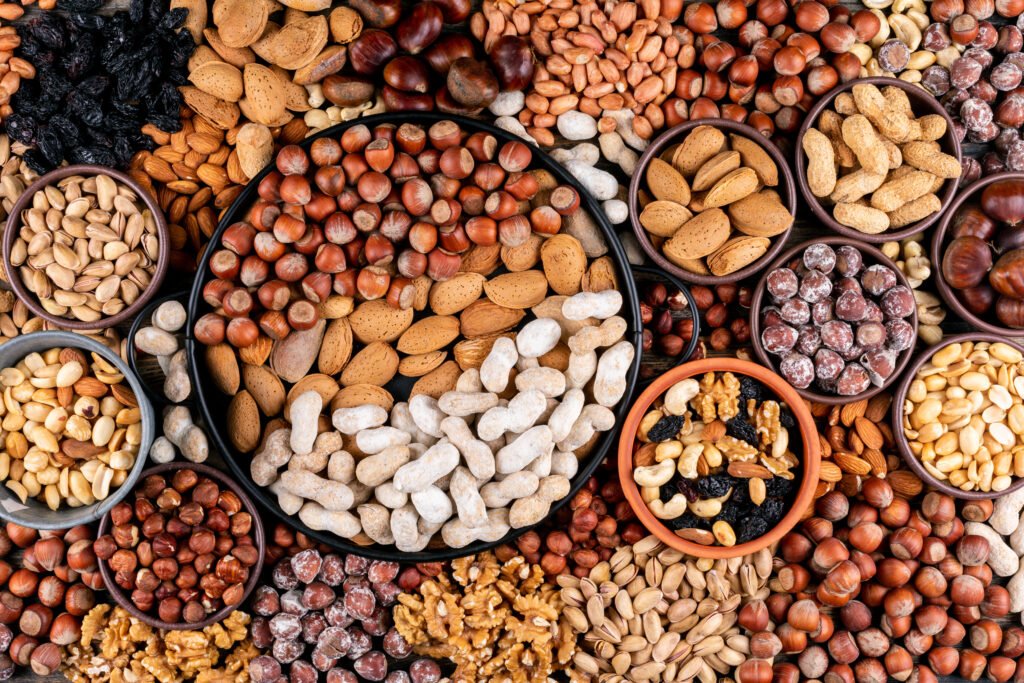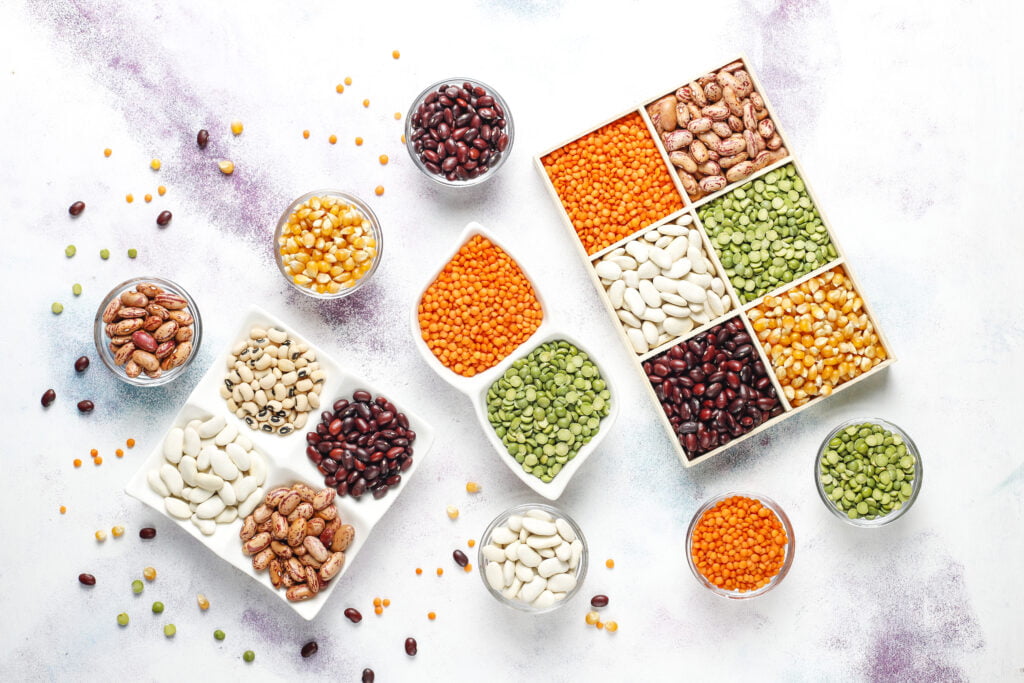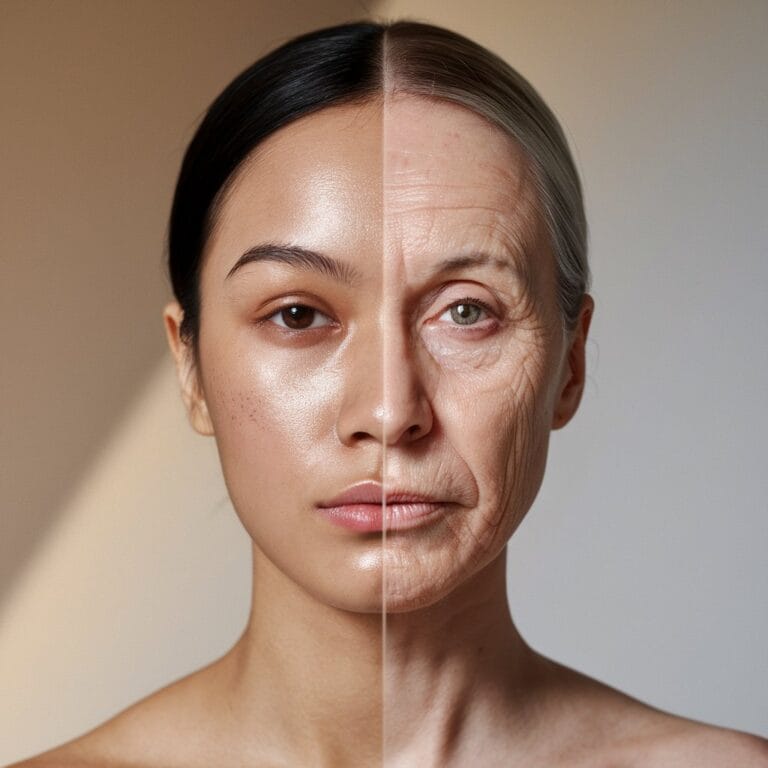FREE SHIPPING OVER $50
Building Collagen Naturally: A Guide to Plant-Based Protein Peptides
Protein peptides or peptides have been gaining popularity in recent years as a natural way to build collagen, the structural protein that gives our skin, hair, and nails their strength and elasticity. Collagen production decreases with age, which can lead to wrinkles, thinning hair, and brittle nails. While there are many different ways to boost collagen production, the most effective way to increase collagen levels is through diet. In this guide, we will explore the science behind protein peptides and how to incorporate plant-based sources into your diet for optimal collagen production.
Disclaimer: This article may contain affiliate products.
The Science Behind Collagen Building Protein Peptides
Collagen is a vital structural protein that plays a crucial role in maintaining the strength and elasticity of various tissues within the body, such as the skin, tendons, ligaments, and cartilage. It is made up of three specific amino acids: glycine, proline, and hydroxyproline. As we age, collagen production naturally decreases, leading to signs of aging such as wrinkles and joint stiffness.
Protein peptides are short chains of amino acids that are easily absorbed by the body. They are also the building blocks of collagen, which is made up of three amino acids: glycine, proline, and hydroxyproline.
When we consume protein peptides, our bodies break them down into their individual amino acids, which are then used to create new collagen. Since peptides are smaller and more broken down than protein they may be easy to for the body to absorb.
Protein peptides can be considered like the foundation of a house. Just as a house needs a strong foundation to stay upright, the body needs protein peptides to build and repair muscle and tissue
Benefits of Collagen building Protein Peptides
Collagen building protein peptides have several benefits for the body. According to this research on the relevance of peptides in cosmetics which states that bioactive peptides can improve skin elasticity and reduce wrinkles.
Additionally, protein peptides are known to provide other advantages for the body, including:
- Improving skin health: Collagen is an essential component of the skin and helps to maintain its elasticity, firmness, and hydration. Collagen building protein peptides can improve skin health by promoting collagen synthesis and reducing the appearance of wrinkles and fine lines.
- Promoting joint health: Collagen is also a vital component of joints, providing structure and flexibility. Collagen building protein peptides can help to reduce joint pain and stiffness by promoting collagen synthesis and supporting the overall health of joints.
- Enhancing muscle recovery: Collagen building protein peptides can also improve muscle recovery by promoting the synthesis of collagen in muscle tissue. This can help to reduce muscle soreness and improve overall muscle function.
- Supporting bone health: Collagen is an important component of bones, providing strength and flexibility. Collagen building protein peptides can support bone health by promoting the synthesis of collagen in bone tissue and supporting overall bone density.
- Boosting gut health: Collagen building protein peptides can also support gut health by promoting the growth of beneficial gut bacteria and improving gut barrier function.
Plant-Based Sources of Protein Peptides

While animal-based sources of protein peptides, such as bone broth and collagen supplements, are popular, there are also many plant-based sources available. Some of the best sources include:
- Legumes: Lentils, chickpeas, and kidney beans are all excellent sources of protein peptides. They are also high in fiber, iron, and folate.
- Whole grains: Quinoa, oats, and brown rice are great sources of protein peptides, along with complex carbohydrates and fiber. They also contain minerals such as magnesium and zinc.
- Nuts and seeds: Almonds, chia seeds, and hemp seeds are all high in protein peptides and healthy fats. They also provide important nutrients such as vitamin E and iron.
- Leafy greens: Spinach, kale, and broccoli are all rich in protein peptides, as well as other nutrients like vitamin C, calcium, and iron.
- Soy products: Tofu, tempeh, and edamame are all excellent sources of protein peptides. Soy also provides important nutrients such as iron, calcium, and vitamin B12.
- Pea protein: Made from yellow peas, this protein powder is a popular vegan supplement. It is a complete protein source and also contains iron, magnesium, and other minerals.
- Chlorella: This type of algae is high in protein peptides and is also a good source of iron, vitamin B12, and antioxidants.
- Spirulina: Another type of algae, spirulina is rich in protein peptides and also contains important nutrients like vitamin B12, iron, and beta-carotene.
- Nutritional yeast: This vegan food product is high in protein peptides and also provides important nutrients such as B vitamins, zinc, and selenium.
- Seitan: This protein source is made from wheat gluten and is a good source of protein peptides. It is also low in fat and contains iron and calcium.
Incorporating Protein Peptides into Your Diet

Incorporating protein peptides into your diet can seem overwhelming, but it doesn’t have to be. There are easy ways to switch things up and add more plant-based protein peptides to your meals.
We also curated a list of 8 Delicious Vegan Dinner Recipes packed with the ingredients and instructions. So let’s get started on some simple ways to add more protein peptides to your diet:
- Swap out meat for legumes: Instead of meat-based dishes, opt for meals that include lentils, chickpeas, and kidney beans. These legumes are not only high in protein peptides but also fiber and other essential nutrients.
- Start your day with oats or quinoa: These whole grains are not only great sources of protein peptides but also provide sustained energy throughout the day. Add some nuts and seeds for an extra boost.
- Snack on nuts and seeds: Almonds, chia seeds, and hemp seeds are all great sources of protein peptides and healthy fats. They make for an easy and satisfying snack.
- Get your greens: Leafy greens like spinach, kale, and broccoli are not only high in protein peptides but also provide a variety of vitamins and minerals. Add them to your smoothies, salads, or stir-fries.
- Try soy products: Tofu, tempeh, and edamame are all great sources of plant-based protein peptides. They can be used in a variety of dishes and are a great meat substitute.
- Use pea protein powder: Pea protein powder is a popular vegan supplement and can easily be added to smoothies or baked goods.
FAQs
Yes, collagen peptides do count as a source of protein. They provide amino acids that contribute to your daily protein intake.
Collagen protein and collagen peptides are essentially the same; the terms are often used interchangeably.
No, there is no significant difference between collagen protein and collagen peptides. Both offer similar benefits for hair, skin, and joint health.
Collagen peptides can be considered a type of protein powder, but they are distinct from traditional protein powders like whey or plant-based proteins, as they primarily provide collagen-specific amino acids.
Conclusion
In conclusion, building collagen naturally can be achieved through incorporating plant-based protein peptides into your diet. These peptides provide the body with the necessary building blocks to support the formation and maintenance of healthy collagen levels.
So are you looking for an easy way to incorporate plant-based protein peptides into your diet? Check out Sunwarrior’s collagen building protein peptides, made from organic plant-based ingredients that help you build collagen naturally. Plus, they have a range of other plant-based protein supplements for weight management, performance, and active sports. And right now, you can save $15 on your $100 purchase at Sunwarrior.com with code APRIL15 at checkout. Don’t miss out on this amazing offer and start building collagen naturally today!







